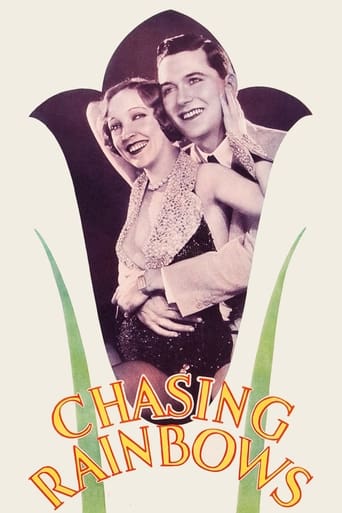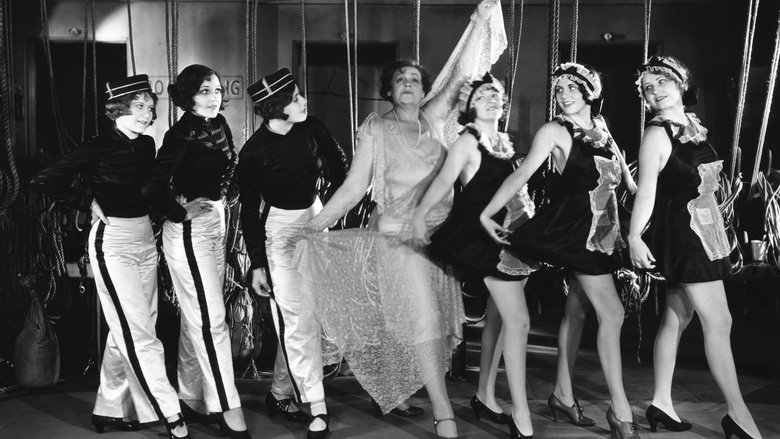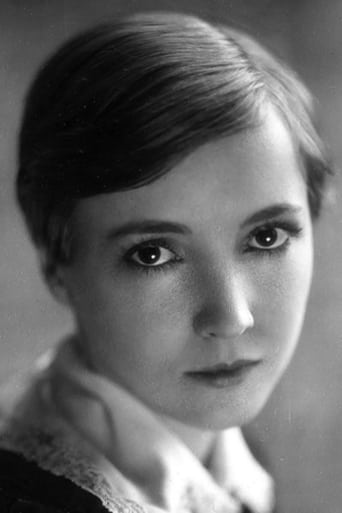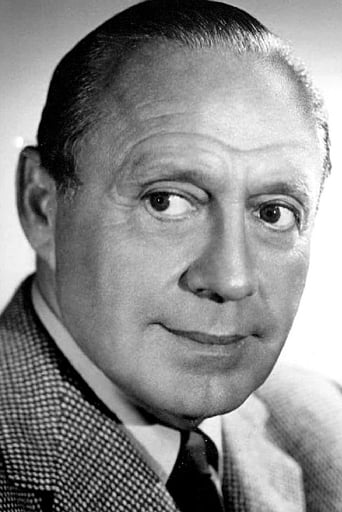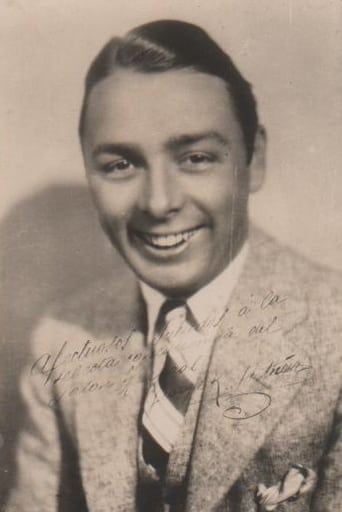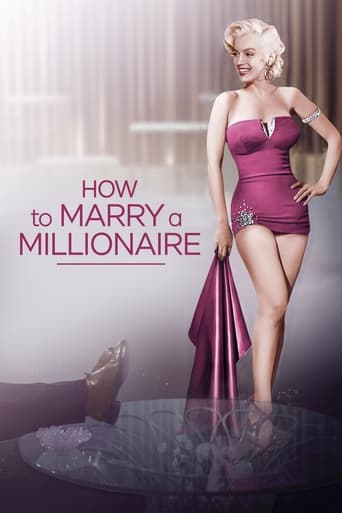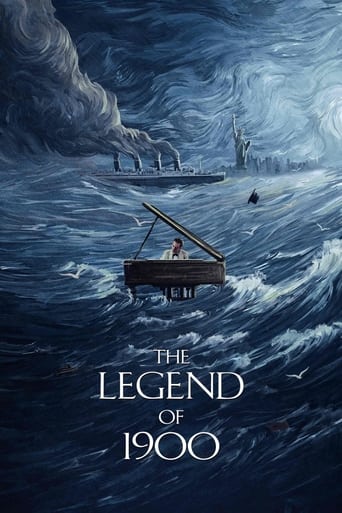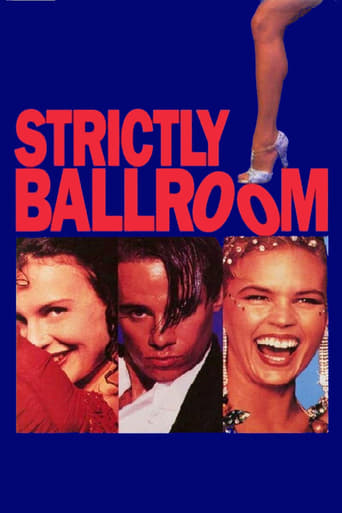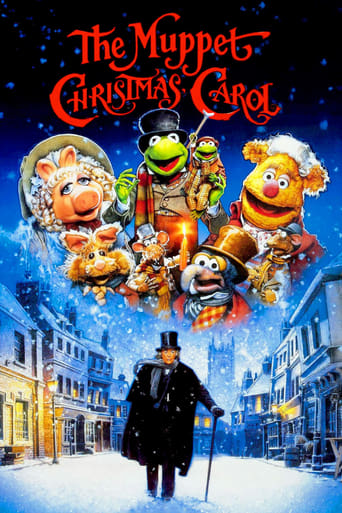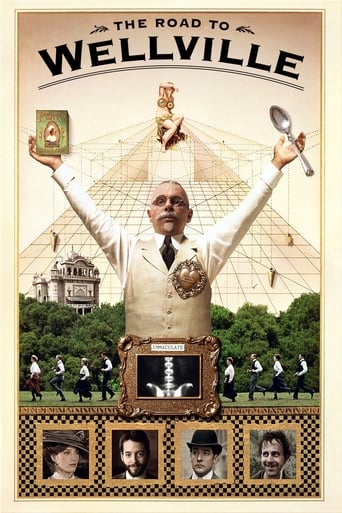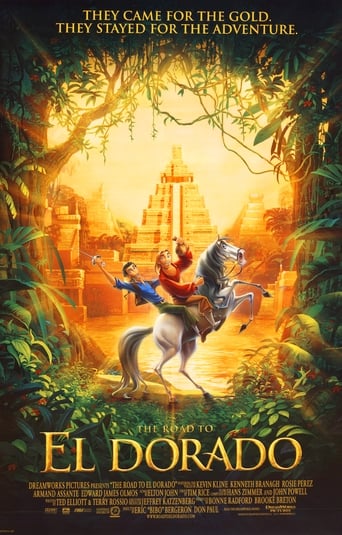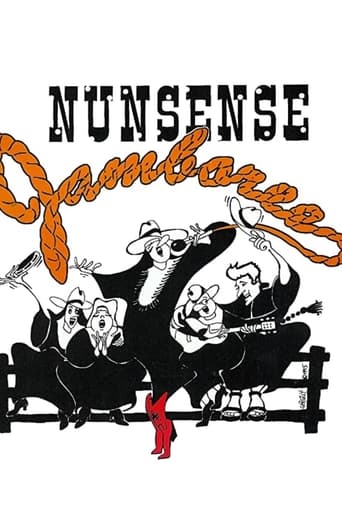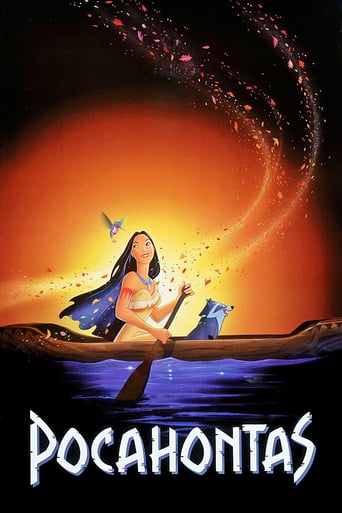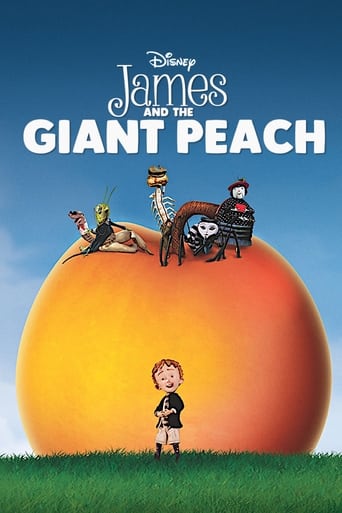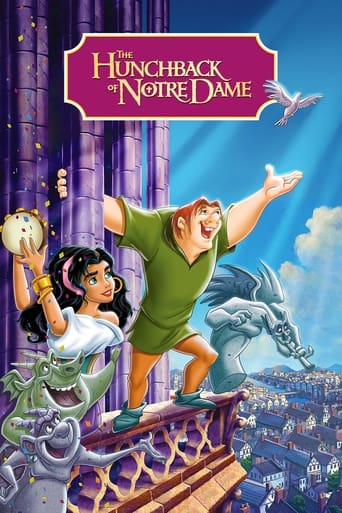Chasing Rainbows (1930)
The road-show troupe of a top Broadway show go cross-country while taking the audience along on the on-stage scenes as well as what happens and is happening back stage of the production. The spectacular dancing ensembles and colorful costumes and pulchritude on-stage offers a contrasting background to the drabness of the backstage, where joy, sorrow, tragedies, deception, and romance are intertwined.
Watch Trailer
Free Trial Channels
Cast


Similar titles
Reviews
Purely Joyful Movie!
Best movie ever!
The film was still a fun one that will make you laugh and have you leaving the theater feeling like you just stole something valuable and got away with it.
A film of deceptively outspoken contemporary relevance, this is cinema at its most alert, alarming and alive.
"Chasing Rainbows" (Metro-Goldwyn-Mayer, 1929-30), directed by Charles F. Reisner, was the studio's attempt in duplicating the success of its very first all sound musical titled "The Broadway Melody" (1929), that won the Academy Award as Best Picture. To review "Chasing Rainbows," one cannot help but compare this to "The Broadway Melody," a backstage story revolving around a sister act (Bessie Love and Anita Page) that nearly breaks up on account of their love for the same leading man (Charles King). Aside from the re-teaming of Love and King, this new edition, set in small town theaters during a road show tour instead of the Broadway theater district, substitutes troublesome leading ladies over kid sisters to complicate matters. Love, whose climatic crying scene from "The Broadway Melody" that earned her an Academy Award nomination as Best Actress, attempts doing same thing here with her moment of hysterics, this time with laughter. As much as the situations are basically the same, the results aren't. Although the film's title might indicate an old favorite of "I'm Always Chasing Rainbows" as one of its highlight production numbers, it actually began production as "Road Show" a title more appealing to the plot at hand.Following the opening title credits over the visual of a passing train, and minus any underscoring, the plot gets underway with the closing of the road show performance of "Good-bye Broadway" where the cast gathers together in the big finale. Eddie Brock (Jack Benny), the stage manager, gets the company ready for their next engagement in another town. Terry Fay (Charles King), the leading man, is blind by the true love of Carlie Seymour (Bessie Love), his partner of five years. Upset over Peggy (Gwen Lee) quitting the show and leaving with another man, Terry threatens suicide until Brock acquires Daphne Wayne (Nita Martan) as the show's new leading lady. Terry falls for Daphne, who, in reality, is using him for her own professional gain. After Carlie discovers Daphne carrying on an affair with Don Cordova (Eddie Phillips), her former leading man, she tries to warn Terry, who refuses to listen. Even after he realizes Carlie accusations are correct, Terry, still blinded by Daphne's presence, marries her, complicating matters all around.For the motion picture soundtrack, songs (*indicating two-strip Technicolor sequences) include: "Happy Days Are Here Again" (sung by chorus); "Pure But Honest" (sung by Marie Dressler); "Lucky Me and Lovable You" (sung by Charles King); "Do I Know What I'm Doing?" (sung by Nita Martan, reprized by Marie Dressler and Polly Moran); *"Everybody Tap" (performed by Bessie Love); *"Love Ain't Nothing But the Blues" (sung by Charles King); "Lucky Me and Lovable You" (reprised by Charles King); *"My Dynamic Personality" (sung by Marie Dressler) and *"Happy Days Are Here Again" (sung by chorus). Considering its bright score, only "Happy Days Are Here Again," twice performed briefly, remains relatively known to this day. "Lucky Me and Lovable You," the film's best song, used for underscoring during the tender moments between King and Love, did not recapture the similar mood and qualities of "You Were Meant For Me" that was introduced in "The Broadway Melody." While "Chasing Rainbows" improves technically over its primitive production style of "The Broadway Melody," which simply lacked the brighter moments supplied by Marie Dressler and Polly Moran in their usual feuding pal roles. Dressler, shortly before achieving super stardom following her Academy Award winning performance in "Min and Bill" (1930), not only gets a chance to sing, but shares a drunken scene with Moran, cast here as the wardrobe woman. Fans of Jack Benny's radio and TV show can get an early glimpse of the popular comedian before reaching 39 playing a straight man providing some funny one-liners here and there.Of all the musicals produced during the early sound period, "Chasing Rainbows" is truly a forgotten one. Due to the missing two-strip Technicolor musical sequences, shortening its original length from 100 minutes to 86, "Chasing Rainbows" has never been televised, at least until the era of Turner Classic Movies following its 1984 premiere where this musical became part as its very own film preservation series where still photos for the missing sequences were inserted with sub-titles indicating its actions filling in the void. With that said, "Chasing Rainbows," in spite of Charlie King's occasional annoying character portrayal, proves not only one of the more worthier rediscoveries of the early sound era, but a good companion piece to the much better known "Broadway Melody." (** curtain calls)
Pretty big role for Jack Benny in his very first film acting role, playing someone besides himself (acc to IMDb). He rattles off many of his one-liners as Eddie, part of the big traveling (and unraveling) road show. He should know, after all those years of vaudeville, before getting his own radio and TV shows. This movie is all about taking the show on the road, and Bonnie's (Marie Dressler) facial expressions as she gets elbowed, steam-blasted by the train, and insulted by the rest of the cast. Dressler was showing her age here (sixty something, with pretty big bags under her eyes) but that didn't slow her down any. She made SEVEN films in 1930, and only made a couple more before passing away in 1934. Two of her last ones were biggies, Tugboat Annie, and Dinner at Eight! Co-stars Bessie Love (Carlie) and Polly Moran (Polly) had also started in the silents and continued on with the talkies. Lots of backstage jokes and chiding each other, mostly by Eddie and Polly. Also an on again, off again love story between Carlie and Terry (Charles King, who only made a few films). Some serious, touching moments between the girls as they talk over their intentions regarding the men-folk. Sad to note that the color song and dance portions are missing in action - hopefully someday they will be found. Directed by Charles Reisner, who had worked his way up through every occupation, starting with the silents. Written by Robert Hopkins, who would be nominated for an Oscar for his writing on San Francisco (1936). Good story, no plot holes, very family friendly. I really enjoyed watching this one.... it wasn't as hokey as a lot of those "back-stage, behind the scenes stories" were back then. Good to see J. Benny in an early role.
What a potentially great film (finally got hold of a copy), a big hit MGM musical that boasted Bessie Love, Charles King, Jack Benny, Marie Dressler, and Polly Moran.What a shame that all the Technolor is gone from the existing print, and even worse, so are all the big production numbers! Title cards appear to tell us where the numbers USED to be. Even the audio is gone.Indeed we miss Bessie Love leading a chorus in "Everybody Tap," Charles King singing "Love Ain't Nothing' but the Blues." and Marie Dressler singing "My Dynamic Personality." Also the entire finale of "Happy Days Are Here Again" is also gone. Thanks to Richard Barrios for listing the missing songs in a footnote in A SONG IN THE DARK.The few numbers that are left aren't too great. King sings "Lucky Me and Lovable You" to Love (who does not sing). But they do a short dance number. Dressler does an early number on the train, and Nina Martan (odd spelling) also sings one song.In this backstage musical about an acting company traveling across country in a show called "Goodbye Broadway," we get the usual stories about jealousy, love, etc. Love is adorable as Carlie, King is better than he was in THE Broadway MELODY, Benny is funny, and of course Dressler and Moran steal every scene they're in. George K. Arthur has a small role as a (gay?) member of the troupe, and so does Gwen Lee as the member who quits early on, requiring them to hire Martan. Eddie Phillips plays the smarmy lover.After smash hits with THE Broadway MELODY and Hollywood REVUE OF 1929, MGM launched this musical with its A Cast, but by the time the film hit theaters, the craze for musicals was winding down. Revue films were so unpopular that MGM included "Not a Revue" in its advertising for CHASING RAINBOWS. Bessie Love was MGM's #1 musical star of the time, and Marie Dressler and Polly Moran are just plain hysterically funny together.Let's hope these Technicolor musical numbers are found some day. What a treat that would be!
A troupe of musical comedy performers travel about the country, forever CHASING RAINBOWS of success & happiness.This early MGM musical, considering its age and the obvious limitations brought on by the new sound technology, does a fair job in entertaining its audience. Although the film features a song that would become a classic ('Happy Days Are Here Again' by Milton Ager & Jack Yellen) it is on the strength of a couple of its performances that its modest success is based.Pert & pretty Bessie Love is wonderful as a sweet young singer who adores her leading man. She is completely natural with the microphone and exhibits a tender talent which was never allowed to grow to its full potential in talking films. While good throughout, the scene in which she dissolves into hysterical laughter upon hearing some emotionally devastating news is absolutely frightening in its power.As her love interest, Charles King doesn't fare nearly so well. This is largely due to the fact that his romantic trials & tribulations - involving women other than Miss Love - are of no interest whatsoever and his reaction to them show his character to be both shallow & immature, critical character flaws in a film's hero. King was among MGM's very first musical stars, but his movie career would be very brief, lasting only from 1928 to 1930, for a total of six films.Playing the stage manager, Jack Benny is the emotional calm point around which the activity swirls. He has very little to do besides move the plot along. His brotherly interest in Miss Love seems platonic and Jack is left out of the film's romantic action. While not given top billing, Canadian Marie Dressler steals the film as an aging comedienne with too much past. Using her large, homely face & shapeless body to great advantage, she grabs the viewers' attention and never lets go. At this point in her career Dressler was right on the cusp of gaining enormous personal success and within a year she would become Hollywood's biggest star. Even in such a relatively routine role, such as she fills here, Dressler reveals the tremendous heart & common touch which would be the secret to her celebrity. (For an extra chuckle, pay close attention during the opening long shot where the cast sings the last few bars of 'Happy Days' - just to the right of center screen is the Marvelous Marie, swaying across the stage with elephantine grace.)Appearing as a drunken wardrobe lady, the ubiquitous Polly Moran makes another appearance as Dressler's sidekick. Short, spunky & buxom, Polly was always fun to watch - but never more so than when teamed with Marie.In a small role, George K. Arthur plays Benny's gynandrous assistant; an important silent comedy star for MGM, this Scottish-born actor would soon sink into talkie anonymity.It should be noted that the film's original Technicolor sequences - including several songs and the entire conclusion - are now completely missing.

